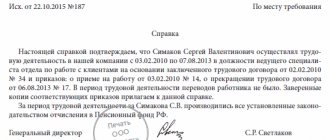Regardless of the terms of the will and the order of inheritance, his disabled dependents receive a mandatory share in the property of the deceased.
Establishing by a court the fact that a person is a dependent is a difficult issue for Russian courts. There are many regulations that classify various categories of citizens as dependents. This causes misunderstanding on the part of ordinary people, who in different situations acquire and lose the legal status of a dependent, while their actual situation does not change.
Who is a dependent
Dependent status means that a person's material needs are constantly provided for by another person or the state. Such people cannot earn a living through their labor due to health problems or due to age.
A priori, children under 18 years of age fall into the category of dependents. Parents have a duty to support their child, so no special evidence is required to be presented to the court. In some cases, children under 23 years of age who are receiving full-time education are considered dependents.
If the parents are divorced, the ex-wife supports the child, and the father pays child support, then the minor will be considered a dependent of the mother. This category includes children of working age who have a disability that prevents them from working.
Recognition as a dependent of a minor is not required when opening an inheritance due to the death of one of the parents. Children have the right to a mandatory share in the inheritance, regardless of whether they have another source of income.
Article 1148 of the Civil Code of the Russian Federation establishes that in order to receive additional rights to an inheritance, a dependent must be recognized as disabled. These are:
- minor children;
- citizens who have reached the established retirement age;
- persons recognized as disabled for medical reasons.
Only those citizens who meet the following requirements can be recognized as disabled dependents of the testator:
- lived together with the deceased for a year before the opening of the inheritance;
- were dependent on him, that is, dependent on the testator financially;
- are disabled at the time of the testator's death due to age, illness, injury or other reasons.
In this case, the citizen could be financially supported by the deceased before becoming incapacitated.
It is worth noting that this category may include not only relatives, but also friends and acquaintances of the deceased.
A new approach to proving dependent status
In all cases when the law does not disclose the content of the structural elements of the concepts enshrined in it, a contradictory – often openly negative – practice develops in relation to plaintiffs arguing with government agencies.
The institution of survivors' pensions, which includes the concept of dependency, is a prime example; This category of cases accounts for the vast majority of claim denials. With the adoption by the Supreme Court of the Russian Federation of the Ruling of February 8, 2021 in case No. 5-KG20-125-K2, there are grounds for “cautious optimism” in assessing the prospects for these disputes as “satisfactory.”
The procedure for recognizing the fact of being a dependent
The fact of being a dependent is established in court. To do this, you must file a claim containing the following points:
- Information about the applicant: Full name, date of birth, residential address.
- Name of the court and its location.
- Stakeholder data. If the court requires the court to establish the fact that a deceased person is dependent, then his potential heirs should be indicated.
- A brief statement of circumstances that objectively indicate the applicant's dependent status. It is recommended to enter the details of people who can confirm the above.
- In accordance with Article 267 of the Code of Civil Procedure of the Russian Federation, the applicant must indicate the purpose for which he will use the fact established by the court. Determination of dependent status is required to obtain a mandatory share in the inheritance, receive a survivor's pension and for other purposes. In each specific case, different rules of substantive law will be applied, which will influence the decision made.
- The application must also contain a request to suspend the inheritance process, since there is a legal dispute regarding the property.
- Request to recognize the person applying as a dependent of another person, indicating his full name.
- List of attached documents.
The statement of claim is sent to the district court at the place of residence of the person who compiled it.
In order to establish the fact of being a dependent, applicants usually submit the following documents:
- a copy of an identity document;
- pensioner's ID;
- decision of a medical examination to recognize a person as disabled;
- documents confirming the relationship between the applicant and the deceased;
- certificate of residence.
If the applicant refers in the claim to the evidence of neighbors or other persons, then these citizens will need to be summoned to the court hearing by summons.
Establishing the fact of dependency in a claim usually does not require much time. The applicant must ensure that the court is presented with comprehensive evidence of both financial dependence on the deceased and cohabitation.
Judges take a formal approach to assessing the degree of dependence of the person being supported on the deceased. Judicial practice is replete with cases where the decision was not made in favor of the plaintiff, since he received a pension from the state. At the same time, its size, human needs were not taken into account, and its expenses and other circumstances were not examined. Having a source of income in the form of a pension, disability benefit or annuity does not yet indicate a person’s financial independence.
An unsatisfactory court decision can be appealed to a higher authority.
How to register dependence on a wife’s child from her first marriage?
Dear Alina! In accordance with Art. 90 of the Family Code of the Russian Federation, parents are obliged to support their minor children. The procedure and form for providing maintenance to minor children are determined by the parents independently. Parents have the right to enter into an agreement on the maintenance of their minor children (agreement on the payment of alimony) in accordance with Chapter 16 of this Code. 2. If parents do not provide maintenance to their minor children, funds for the maintenance of minor children (alimony) are collected from the parents in court. In the absence of an agreement on the payment of alimony, alimony for minor children is collected by the court from their parents monthly in the amount of: for one child - one quarter, for two children - one third, for three or more children - half of the earnings and (or) other income of the parents. The size of these shares may be reduced or increased by the court, taking into account the financial or family status of the parties and other noteworthy circumstances. (Article 81 of the RF IC) In the absence of an agreement between the parents on the payment of alimony for minor children and in cases where the parent obligated to pay alimony has irregular, variable earnings and (or) other income, or if this parent receives earnings and (or) other income in whole or in part in kind or in foreign currency, or if he has no earnings and (or) other income, as well as in other cases, if the collection of alimony in proportion to the earnings and (or) other income of the parent is impossible, difficult or significantly violates the interests of one of the parties, the court has the right to determine the amount of alimony to be collected monthly, in a fixed sum of money or simultaneously in shares (in accordance with Article 81 of this Code) and in a fixed sum of money. 2. The amount of a fixed sum of money is determined by the court based on the maximum possible preservation of the child’s previous level of support, taking into account the financial and marital status of the parties and other noteworthy circumstances. 3. If there are children with each of the parents, the amount of alimony from one of the parents in favor of the other, less wealthy one, is determined in a fixed amount of money, collected monthly and determined by the court in accordance with paragraph 2 of this article. Article 89 of the Family Code of the Russian Federation. Determination of shares when dividing the common property of spouses 1. When dividing the common property of spouses and determining shares in this property, the shares of the spouses are recognized as equal, unless otherwise provided by an agreement between the spouses. The court has the right to deviate from the beginning of equality of shares of spouses in their common property based on the interests of minor children and (or) based on the noteworthy interests of one of the spouses, in particular, in cases where the other spouse did not receive income for unjustified reasons or spent the common property of the spouses to the detriment of the interests of the family. (Article 33-39 of the RF IC). Detailed consultation, drafting documents, conducting a case in court - for a fee T 9152171802 My fate. practice. The site's lawyers do not call you first!
What can a dependent count on?
Recognizing a citizen as a dependent entails certain advantages:
- Such a person is entitled to a mandatory share in the inherited property. The citizen may not be mentioned at all in the will. But Article 1149 of the Civil Code of the Russian Federation guarantees him a part of the property of the deceased in an amount not less than half of what is due to him upon inheritance by law.
- If a will has not been drawn up, then the dependent is equal in rights to the queue that inherits the property by law.
- If the testator has no relatives, then the person receives his property as an heir in the 8th order.
As you can see, the claim establishment of the fact of being a dependent is a long and complex process. Before going to court, the plaintiff should take care of evidence confirming his status.
Being a dependent is a legally significant fact, therefore, subject to establishment, including in court.
The content of the article:
ATTENTION: our family law lawyer will help you in the procedure for establishing the fact of being a dependent or other issue: professionally, on favorable terms and on time. Call today!
Why and who needs to establish the fact of being a dependent?
If a person is unable to independently provide for himself due to long-term disability and financial assistance from another person is required to ensure his life, he is a dependent.
Establishing the fact of being a dependent is required due to the lack of a formalized procedure for its registration; in other words, to obtain the rights provided for by law for a dependent, official confirmation of the status is necessary.
Who is considered a dependent?
Disability goes through several stages during a person's life: 1. The child is a dependent due to not reaching working age.
› Time to read the article = 11 minutes A dependent is considered to be a person under the age of eighteen or twenty-three in the case of education, wives on maternity leave and persons with disabilities.
With a complete list of possible dependents, what payments they are entitled to and how to draw up an application to establish the fact of being a dependent, further in the article.
Content
In Russian law, a dependent is a disabled person, most often having a disability group. A dependent is a person who is receiving long-term or permanent material or monetary support from other persons. In Russian law, a dependent is a disabled person, most often having a disability group.
ANSWER: Despite the fact that you and your husband actually lived as one family and ran a joint household, according to the norms of Russian inheritance law, you cannot be recognized as an heir by law as the spouse of the testator. In accordance with Art. The annuity payer's obligation to provide dependent maintenance may include providing for the needs of housing, food and clothing, and if required by the citizen's health condition, and caring for him.
Is the wife a dependent? The husband is dependent on his wife. The husband is dependent on his wife. At the same time, brothers, sisters and grandchildren are recognized.
The procedure for establishing the fact of being a dependent
Establishing the fact of being a dependent may be necessary for:
- receiving an inheritance;
- pension assignment;
- compensation for harm.
To do this, you need to perform the following steps.
- Determine if you are a dependent. These include disabled citizens who are fully financially supported by the breadwinner - pensioners, disabled people of groups I, II, III. Dependency of minor children is assumed and does not require additional evidence. In the event of the death of the breadwinner and the question of inheritance arises, for dependents who are not included in the first to seventh order of the testator, it will be necessary to prove the fact of cohabitation with him. The period of cohabitation must not be less than one year before death.
- Prepare evidence. Before filing an application with the court, you will need to confirm your dependent status, namely: your disability, being supported by a breadwinner, and the period of cohabitation.
- Draw up an application to establish the fact of being a dependent. This statement is drawn up in accordance with the general requirements for statements of claim.
- Apply to the court. An application to establish the fact of being a dependent, along with all previously collected documents, is submitted to the district court at your place of residence.
- Get a court decision. The court must resolve the issue within two months from the date of receipt of the application to the court, after which the resulting decision can be submitted to the body for which it was required to confirm the fact of being a dependent.
The purpose of establishing the fact of being a dependent
The procedure for establishing the fact of being a dependent is determined by the ultimate goal pursued by the disabled citizen, which may be as follows:
- Allocation of a share in inherited property and funds, or increasing its size.
- Assignment of a monthly cash benefit for the loss of a breadwinner.
- Compensation for damage due to the loss of a breadwinner.
- Mitigation of punishment when committing a criminal offense.
- Taking measures to transfer dependents, the arrested breadwinner, into care.
- Receiving social benefits provided for family members of military personnel.
- Renewal of residence permit and acquisition of citizenship.
Dependency when establishing inheritance rights
The procedure for establishing dependent status is determined by the degree of relationship of the persons applying for a share in the inherited property and funds.
A person who is related to the deceased (Part 1 of Article 1148 of the Civil Code of the Russian Federation) or who is not a relative (Part 2 of Article 1148 of the Civil Code of the Russian Federation) can be recognized as a dependent.
A dependent is a relative of the deceased
If there are family ties between the applicant for inheritance and the testator, the fact of dependency may change the order of inheritance provided for by inheritance law.
That is, if the degree of relationship does not allow one to claim priority accession to inheritance rights, establishing dependency in court allows one to include a distant relative in the list of persons of first priority inheritance.
For example, if a disabled nephew was a dependent, and the legal heirs are the wife of the deceased and his children, establishing the fact of dependence allows the nephew to claim equal shares in the property of the deceased.
In order for an applicant to be recognized as a dependent, it is necessary:
- So that the person claiming inheritance rights is officially recognized as permanently disabled (permanent loss of ability to work). The supporting document will be a certificate of disability of group I or II, issued based on the results of a medical and social examination.
- So that the duration of dependent status exceeds one year. Judicial practice has the following precedents for establishing the period of dependency:
- in a continuous count immediately before death (for example, death occurred on October 15, 2015, and the niece has been a dependent since October 1, 2014);
- in continuous calculation with an interval from the time of death (for example, three years before death, the sister of the deceased was dependent on him for one and a half years due to permanent disability);
- in cumulative terms (for example, during his life, the brother of the deceased was dependent three times for a period of four months, that is, the total duration was 1 year and 2 months).
- So that the income of the applicant for inheritance consists mainly of the maintenance allocated by the deceased. This circumstance is proven by providing certificates of income of the testator and potential dependent.
The dependent is not a relative of the deceased
In the absence of family ties, recognition of the fact that a person is dependent on the deceased allows him to be included in the list of heirs of the corresponding line. Judicial practice has a number of precedents establishing the dependent status of persons who were not legally married but lived together.
In order to claim inheritance rights in this case, you must:
- Be a disabled person of group I or II, and the date of issue of the ITU conclusion must be earlier than the date of death of the testator.
- Live together with the deceased. Evidence of this fact can include testimony from relatives, neighbors or officials (for example, representatives of social services).
- Be a dependent, that is, supported by the deceased, for more than one year. The duration of dependency is determined similarly to the case of the presence of family ties (see above).
- To be financially dependent on the deceased due to the fact that the funds allocated to him constituted the main part of the dependent’s income.
Application to establish the fact of being a dependent
Such a statement must include the following points:
- name and details of the district court to which the application is being submitted;
- information about the applicant: last name, first name, patronymic, place of residence, you can additionally indicate a contact phone number and email address;
- available information about interested parties. These most often include other dependents;
- circumstances confirming the fact of being a dependent;
- the purpose for which this fact is required to be established;
- clearly state the request;
- indicate the list of documents attached to the application and do not forget to attach them;
- put the date of application and your signature.
The application may be signed by a representative, if he has the appropriate right. Documents can be sent to the court either in person or remotely - electronically or by mail. When sending documents electronically, you must have an electronic digital signature or a confirmed signature on the State Services website.
PROMOTION: we will draw up any application to the court within 24 hours, more details video
Establishing the fact of dependency in court
To establish the fact of being a dependent in court, it is necessary to file a claim in court, which should include the following main points:
- The corner stamp includes: the name of the court to which the application to establish the fact of being a dependent is submitted, personal information about the applicant (full name, address) and data of the interested person (name and address).
- The descriptive part states:
- Full name and date of birth (day, month, year) of the person claiming to establish the fact of dependency;
- period of incapacity and its cause;
- who was the dependent of the applicant (full full name of the deceased, date of death, relationship);
- justification for being a dependent;
- the purpose for which recognition of the fact of being a dependent is required;
- a statement of the fact that there are no other documents or methods to confirm dependency and the absence of a dispute about the right.
- The petition indicates the person who should be recognized as a dependent. It is also necessary to indicate the person on whom the applicant will be dependent.
- The following documents serve as attachments:
- copy of the application;
- receipt of payment of state duty;
- documents confirming being a dependent (receipts, receipts, etc.).
- The application is signed by the applicant personally, indicating the date of submission of the application.
As a result of recognition of the fact of being a dependent in pre-trial or judicial proceedings, the person who filed the corresponding claim has the opportunity to obtain means of subsistence, which is often impossible to obtain in any other way, due to incapacity. Thanks to the funds received, a person will be able to continue a dignified existence, as if his breadwinner had not passed on to another world.
How to register dependency for a disabled person?
In order to document the care of a disabled citizen, you must contact the pension fund authority that provides disability payments.
In the application, the citizen providing care indicates his passport details, place of residence, and the start date of care. A person in need of care due to a disability sends an application in which he expresses his consent to the provision of care by a specific person.
Appeals can be sent in person through the portal of the State website of the Pension Fund of Russia. The pension fund makes a decision within five days from the date of receipt of the package of documents, after which it will formalize the dependent status of the disabled person, refuse the application or request additional documents.
How to register dependency on parents?
Dependency on parents who do not have disabilities can be granted when they reach retirement age. In this case, three points are important:
- reaching retirement age;
- parents must receive financial assistance regularly;
- the financial support provided should be their main source of income.
Thus, the main documents for registering dependency on parents will be information that the parents need material support and systematically receive it from their children. The Pension Fund is critical of recognizing pensioners as dependents, since they have their own source of income, therefore, it is often necessary to establish the fact of being a dependent in court.
How to register dependency on the parents of pensioners through the court
If an attempt to submit documents to the Pension Fund is unsuccessful, you should contact the judicial authorities. There is a better chance of establishing the fact of dependency and then submitting an application to the Pension Fund. First, collect all the evidence to confirm the status of a dependent - this is disability, financial support of the pensioner’s parent, and the time period of cohabitation with him. The further algorithm is as follows:
- Prepare a statement of claim “On establishing the fact of being a dependent.”
- Together with a package of evidentiary documents, submit the application to the district court. The processing period for an application is up to 2 months.
- Get a court decision.
- Submit it to the Pension Fund for registration of dependency.
Important! To apply for recognition of the fact of dependent pensioners, parents will have to go to court. Only dependent on a minor child does not require proof.
How to register a dependent for citizenship?
Foreign citizens who have a residence permit on the territory of the Russian Federation are required to annually notify the territorial body of the federal executive body in the field of migration in which the residence permit was received about their living conditions.
The notification must indicate the surname, first name, patronymic (if any), place of residence, work, period of residence outside the Russian Federation for the calendar year, as well as the amount of income for the year after receiving a residence permit. In case of being a dependent, a certificate of income of the person for whom the foreign citizen is dependent may be provided. It should be noted that the procedure for obtaining dependent status by a foreign citizen must comply with the general procedure established by Russian legislation.
In practice, migration authorities regularly refuse foreigners who are not dependent on their close relatives. Upon receipt of such a refusal, it is advisable to apply to the court to establish the fact of being a dependent.
How to claim dependency
After analyzing the experience of various foreign citizens, we concluded that there is no single system. It all depends on the region of origin and the specific inspector. We will describe the main scenarios for confirming finances for a residence permit with the help of a dependent.
We confirm income with a 2-NDFL certificate for a residence permit
The first option is when the breadwinner is not required to write a statement that he is ready to take the applicant as a dependent. This method works when the spouse acts as the breadwinner. The fact is that, according to the law, the income of a husband and wife is considered common, so there can be no talk of dependency. In this case, the applicant simply brings, along with the application and documents for a residence permit, certificates 2 personal income tax of the spouse, his passport and a copy, as well as a marriage certificate.
But even in cases where the migrant is supported by a spouse, some inspectors require the preparation of a dependency document.
Dependency through a notary
Often, especially in the regions, employees of the Ministry of Internal Affairs still require a notarized statement of dependency. In this case, you need to come to the notary together with your relative. The specialists already have the application form, so there is no need to compile it yourself.
The breadwinner will need to sign a statement agreeing to support you. The procedure will cost one to two thousand rubles.
Application from the inspector
Another option is when a statement of dependency is written directly from the inspector when applying for a residence permit. An employee of the Ministry of Internal Affairs will provide a sample.
In this case, you need to come to the filing with a relative. Most likely, you will need an original and a copy of the breadwinner's passport, as well as a document confirming the relationship.
Assistance from a lawyer in obtaining dependents
If questions arise regarding establishing the fact of being a dependent, AB “Katsailidi and Partners” can answer them, and if necessary, take upon itself the resolution of the entire situation and provide the desired result.
Author of the article:
© lawyer, managing partner of the law firm “Katsailidi and Partners”
Initial consultation by phone or when ordering a call back “FREE”
It happens that a pensioner has certain categories of citizens dependent on him. For example, this could be a child of deprived rights or deceased relatives, or a brother or sister who needs care and guardianship. It is clear that an elderly person bears too much of a burden of social responsibility and many pensioners are interested in the question of whether they are entitled to any subsidies, benefits or payments from the state.
What do pensioners have to do?!
According to the current legislation of the Russian Federation, a pensioner who receives monthly payments under an insurance pension or a person on disability who, in turn, has disabled dependents for support, can count on an increased amount of payments. From January 1, 2021, the amount of these payments in increased equivalent amounted to 4982 rubles 90 kopecks.
In this case, for each disabled dependent, the amount is indexed and increased in the following order:
- If there is one dependent person, it is equal to 6643 rubles, and the allowance is 1660 rubles;
- If there are two dependents in care, then the pensioner is entitled to 8304 rubles, and an allowance of 3321 rubles;
- If you have three dependent citizens, you can count on 9965 rubles and an increase of one hundred percent of the fixed payment.
Pensioners who support children, grandchildren, brothers and sisters can receive cash bonuses. At the same time, representatives of these categories of citizens must be under the age of eighteen or be adults recognized as disabled, or under the age of 23 and undergoing full-time studies in educational institutions. For established payments, you must contact the territorial authorities of the branches of the Pension Fund of Russia at your place of residence. You can also apply for cash grants through your personal account on the online government services portal.
Who can officially be considered dependents?!
A dependent is a person who, due to incapacity or minor age, is dependent on relatives. Dependency does not always mean incapacity. For example, children under 18 years of age must be dependent on their parents, who are obliged to provide for them and maintain an appropriate standard of living.
Depending on the situation, dependents may include:
- Minor citizens who have lost their parents or whose parents have been deprived of parental rights;
- Disabled people and people with disabilities recognized as incapacitated or incompetent;
- Any family members who are under the age of 18. These could be sisters, grandchildren, nephews, brothers or sisters who have lost care and support from their own parents;
- Elderly people who have passed the age limit of eighty years.
Thus, citizens who have retired after a long period of work and have achieved the pension length of service established by the norms of pension legislation, but are raising young children or other relatives, caring for elderly parents or the disabled, are entitled to a fixed monetary supplement from government bodies as assistance and social support for those categories of citizens who are recognized as not socially protected. Today, all pensioners with dependents receive an increased pension, and from the new 2021 it is planned to increase its size. At the same time, the government of the Russian Federation guarantees annual indexation of payments to insurance pensions when an elderly dependent person has disabled, minor or incompetent relatives.
What documents will be required in order to obtain an increased pension for a pensioner?!
As noted above, payments can be made both by contacting the Pension Fund at the place of residence, and through the Public Services portal, if a person has registration and a personal account on this site. An application must be prepared in simple written form, in which the information of the pensioner and his place of residence are written, the territorial department of the Pension Fund of the Russian Federation, to which the citizen applies, is indicated, and the situation itself is described in the form of a request to assign additional payments.
The following package of documents is submitted along with the application:
- A copy of the passport of a citizen of the Russian Federation, including copies of the passports of dependents who are dependent on the pensioner;
- A certificate confirming that social benefits have not been received by the pensioner previously. This certificate can be issued at your place of residence;
- Certificate of absence of unemployment payments. Issued by the Employment Center at your place of residence, which you should contact in advance;
- A special document issued by the guardianship and trusteeship authorities at the administration at the place of residence. Required if the dependent is a person under the age of fourteen. The written consent of the parents will also be required if the child has them and does not mind the fact that he will be in the position of a dependent;
- If the dependent is one of the legal spouses, a certificate of marriage between citizens from the registry office or, in case of divorce, a certificate of divorce is required;
- SNILS and a certificate of all the applicant’s income that is currently available when submitting the application and the collected package of documents;
- A certificate identifying the composition of the applicant’s family. You can also obtain such a document at the registry office by submitting an application;
- An extract obtained from the house register or from the place of permanent residence.
A certificate granting additional cash payments to a pensioner can not only be issued initially, but also extended if necessary. In this case, a package of documents is collected (certificates of family composition and place of residence; a document stating the absence of any other benefits, and an extract from the work book) and is also submitted to the Pension Fund at the place of residence of the pensioner.
On March 10, a government decree came into force that simplifies the processing of compensation for caring for people with disabilities and over 80 years of age. Now you will need fewer documents and information for the appointment, which means that you can receive payment faster and easier.
Here's what you should know about these changes.
To whom it concerns
The changes apply to those who apply for compensation payments for the care of disabled people of the first group, except for those disabled since childhood, and elderly people who are over 80 years old or need care for health reasons. If an able-bodied person could work, but instead takes care of someone, the state gives some money in the form of compensation.
This money is received not by the one who cares, but by the one who is looked after: the payment comes along with the regular pension. The recipient then uses this money at his own discretion.
For example, such a payment can be made by the grandson of a grandmother who has turned 80 years old, or by the neighbor of a man with a first group disability - subject to mutual agreement to care.
- An unemployed but able-bodied person is caring for him.
- He does not receive other payments from the government, such as a pension or unemployment benefits.
The monthly payment amount is 1200 RUR. There is also a payment in the amount of 10,000 RUR, but it is received by parents of disabled children and people with disabilities from childhood of the first group.
Get to know the Textbook T—J
What has changed since March 10
The essence of the changes is to simplify the design. The pension fund will receive maximum information from general databases and registers, and there will be no need to confirm the information with certificates. If previously it was necessary to take certificates from social security, tax or employment centers and confirm disability, now this is not required.
Here's what's changed:
- Consent to care on behalf of a disabled person can be submitted by the person who is caring for him and draws up the payment. Previously, the declaration of consent had to be submitted by the person being cared for.
- There is no need to submit documents confirming termination or absence of work. Previously, there was a clause about the availability of such information from the pension fund, but now it has been removed. If desired, documents can be submitted on a voluntary basis. At the same time, payments can be refused or stopped not only if the work is paid - this was the case before - but also if there is simply a fact of compulsory pension insurance.
- Certificates about the absence of a pension and unemployment benefits, an extract from the act of establishing disability, documents about the absence of work with payment of pension contributions, a certificate about the non-assignment of compensation payments in the presence of two pensions, although they were mentioned earlier in the list, they could not be demanded. This condition has been preserved - the information will be checked automatically.
- If a child over 14 years of age will be caring for you, parental consent is no longer required. And a certificate of full-time study, too. Previously, you had to present all this. Now there is a presumption of consent, and if the parent of a child under 15 is against it, he reports this and the payment is stopped.
- If a disabled person who is being cared for moves, the payment will be assigned to him in the new place. Moreover, consent to care can be confirmed over the phone - with a data check and a code word. There is no need to collect certificates about a change of residence.
If it turns out that the payment was received illegally or false information was provided, the money will have to be returned - this responsibility falls on the culprit. Although one person may be the culprit, and another receives the money.
An application for payment can be filled out in your personal account on the Pension Fund website.
How is fault determined and who should return the money?
If a person caring for a disabled person gets a job, retires, or receives unemployment benefits, the right to payment is lost. But the conditional granddaughter who issued the payment may not know or forget about her obligation to inform the pension fund about her employment. But in fact, the grandmother receives the money, and she may not even be aware that her granddaughter is now working and has no right to payment. Although the money continues to come along with the pension.
There was a case when one grandmother received payment for the care of her granddaughter for two years. The pension fund knew that the granddaughter was already employed - they paid contributions for her and submitted reports - but still made her guilty because she did not report on her employment. The grandmother in that story was forced to return the money, and the granddaughter was convicted of fraud under Article 159.2 of the Criminal Code of the Russian Federation - despite the fact that she compensated for the damage.
The obligation to report to the Pension Fund about changes that lead to the cancellation of the payment has not gone away - this must be done within 5 days. “Forgot” is not an argument. Guilt and intent lie in the fact that the person did not report, although he had such an opportunity. And the crime is the fact of receiving compensation, not hiding information.
If you receive such a payment, monitor the changes in the life of the one who seems to be caring for you. Considering that even a stranger whom you have never seen can look after you, this can be difficult.
If you are registered as a carer, promptly inform the Pension Fund about employment, benefits, pensions and other events from paragraph 9 of the approved rules. It may happen that you did not see the money, but you are obliged to return it. Under Article 159.2 of the Criminal Code of the Russian Federation, it is possible to punish those who did not actually receive the payment. It matters who used it.








